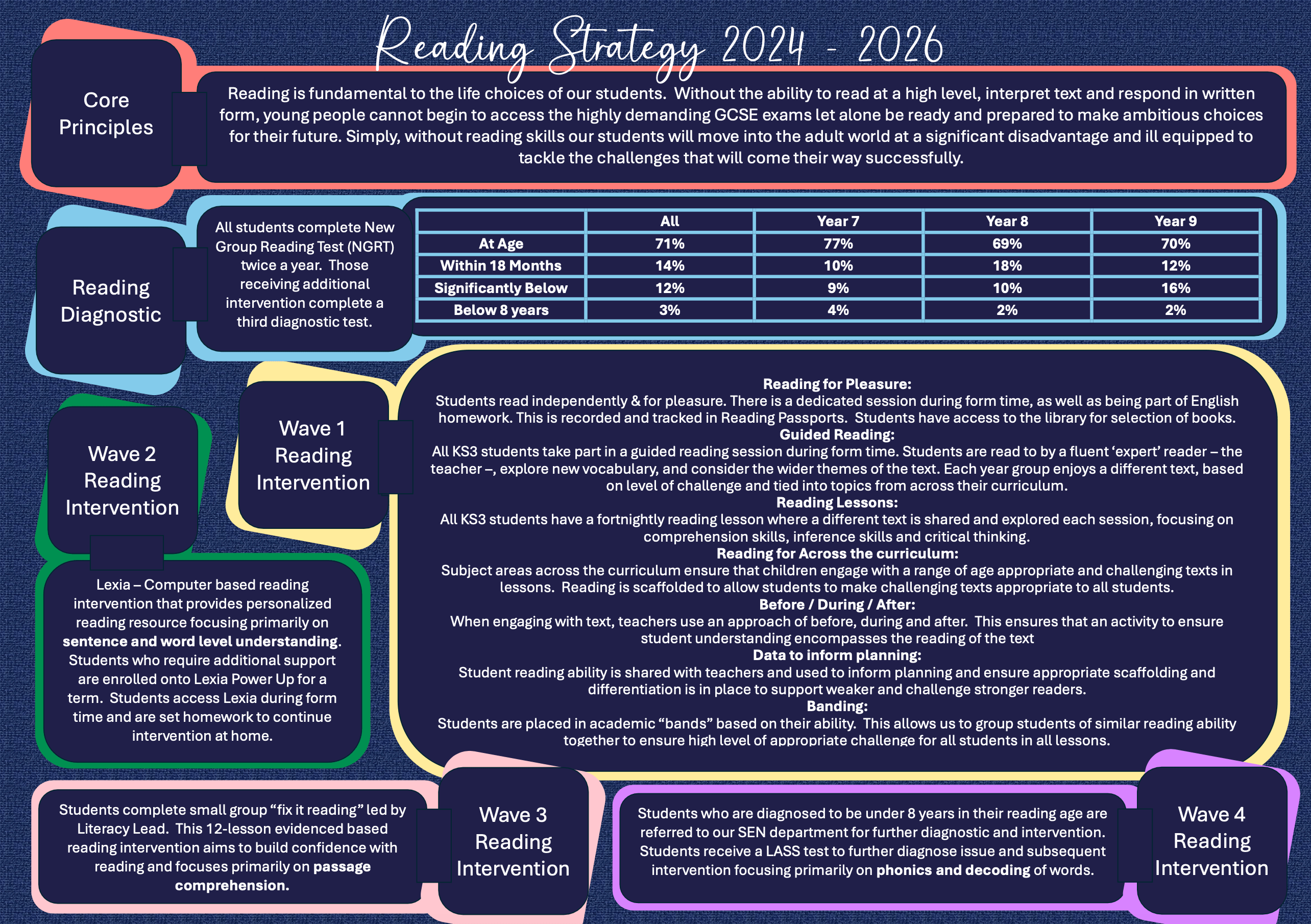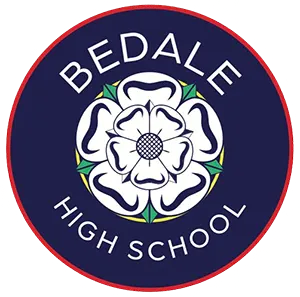
“Lacking vital literacy skills holds a person back at every stage of their life. As a child they won’t be able to succeed at school, as a young adult they will be locked out of the job market, and as a parent they won’t be able to support their own child’s learning. This intergenerational cycle makes social mobility and a fairer society more difficult.”
National Literacy Trust
At Bedale High School we believe that strong reading skill is essential to future happiness, success and choice.
Reading at a high level, interpreting texts and responding in writing allows young people to thrive in highly demanding GCSE exams and be ready and able to make ambitious choices for their future.
We view reading as a vital part of the curriculum for all children, regardless of ability. Through explicit teaching of reading we ensure that children are able to develop their literacy skills regardless of their starting point. All students can develop their reading skills throughout their time at school, enabling them to be successful here and in later life.
Our Approach:
Our approach to developing reading can be summarised into three key strands:
Vocabulary Building:
Knowing words is vital to students engaging with learning and forming deeper understanding. Put simply, the more words students know and are able to use correctly, the more likely they are to be successful.
Students are encouraged to develop and use an expansive vocabulary in all lessons. Subject areas identify vital vocabulary which is explicitly taught in lessons and students are rewarded for using this correctly in written responses. This is supported in vocabulary building exercises delivered as part of our form time activities.
In addition, our marking approach ensures that students are using complex words correctly and spelling is as accurate as possible.
Reading for Understanding and Pleasure:
The following are among our strategies to enable students to read for understanding and pleasure:
- Timetabled reading lessons for all Key Stage 3 students
- Use of ‘Before, During, After” activities to ensure that students explicitly engage with texts whenever they read in lesson.
- We treat reading like other learning activities and think carefully about how accessible a text is. We provide appropriate scaffolds to unlock complex texts for students.
- We promote a love of reading through our reading passports, the school library and a range of reading activities.
Additional Supported Intervention:
In order to ensure that all students are able to read an appropriate level, we complete a reading age diagnostic twice a year.
Where the diagnostic raises potential issues in reading, we ensure that students receive support through the following methods.
a) Engaging with our SEN team to further investigate potential learning barriers.
b) Our banding structure allows some students to be placed in smaller groups to ensure that students can access additional literacy support in key lessons.
c) Enrolling on an additional programme of support such as small group intervention, reciprocal reading or paired reading.
